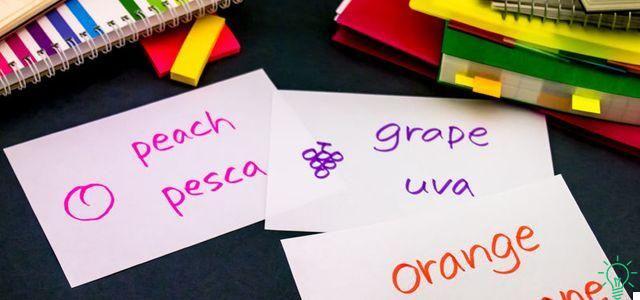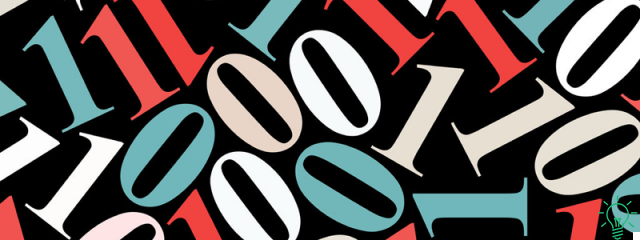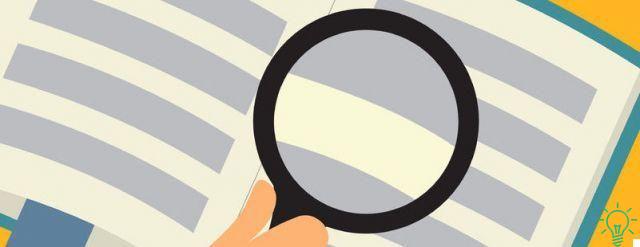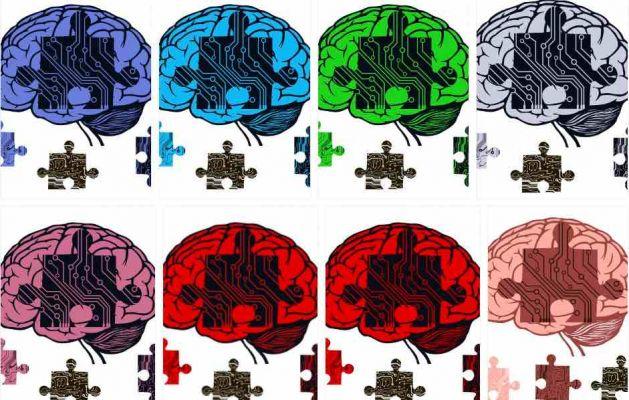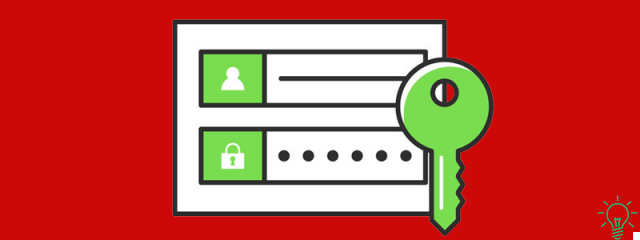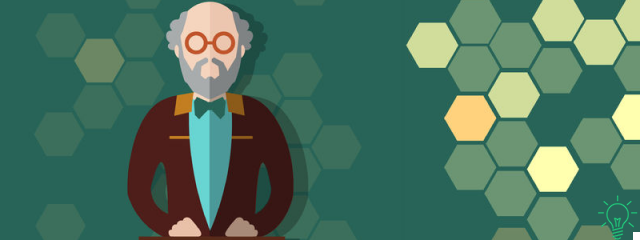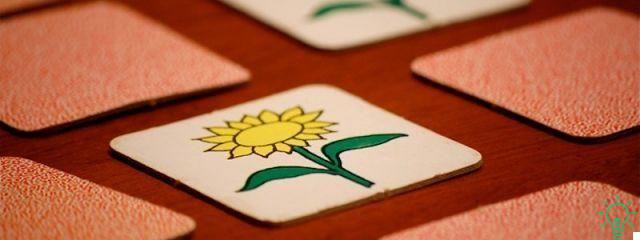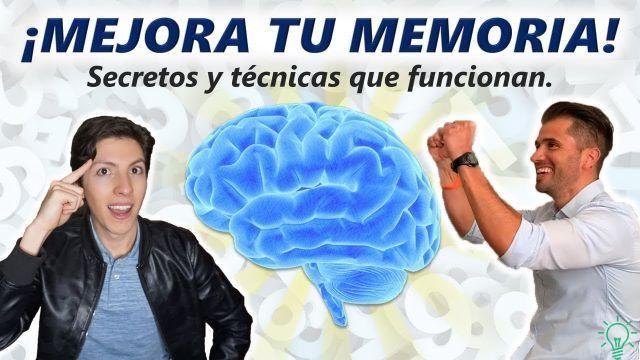
Many are interested in memory techniques because they want to find out how to study well and quickly, but they encounter, as is normal, difficulties.
For example, here is what Luisa (real name!), A university student who read my book on Amazon wrote to me:
“I've read your book, but it looks like bullshit to me. I would really like to know how you would study for a minimum 12 credit exam in which there are at least 1500 pages to study in which the numbers are 5% of the text. Certainly if you have to connect the concept of obligation (with all the classifications) to the figure of the elephant or the dog, I don't think you are right…. "
Now, it is clear that Luisa not only did not understand anything about the techniques, and so far there is nothing wrong with it, but she was also a bit presumptuous.
As if I bought myself a guitar manual a week ago and wrote to the author that I can't play, and therefore the book is bullshit. Just thinking about it makes me feel moron!
On the other hand, Luisa's email gave me the opportunity to write today's article, in which we will see:
- First, what's wrong, really, in Luisa's email.
- Then, how can you start using memory techniques to study; if you have the desire, the time and the need to learn them.
Are you a university student? Think like it
(Before starting, a note for Luisa:
Dear Luisa, I'm sorry, but now you have some metaphorical slaps. Believe me, it's not personal, surely you are also a good girl.
But you gave me too good an opportunity to tell a couple of things I care!)
Now, I don't care at all that Luisa criticizes memory techniques, I do too when appropriate.
But when I read an email that is so rude, where you don't even bother to say hello, and so superficial, where you argue inappropriately, I suddenly get old and despair a little for future generations.
As my grandparents did with me, and how each generation seems to do with the next. Then, fortunately, each generation matures in its own way.
You see, an individual's attitude often affects all aspects of his life.
And therefore, when a university student does not demonstrate a critical sense or maturity of behavior towards others, I think he will hardly be able to do well.
With or without memory techniques.
Now, Luisa thought she would read a 3 euro manual and become a genius of the study the next day. But where does he live?
Please, don't do the same yourself!
You are at the University, an institution perhaps a bit decadent, but with 6 centuries of history.
So live the thing with pride and awareness, learning to think and behave like a college student.
For example, do you have an opinion?
Support it with education, determination and depth. Don't think, and don't write emails, as if you were an 8 year old.
What is worth learning first?
Many people have excellent results even without memory techniques.
I write about them and I tell you about them because I like them: they are creative, intelligent, and they have helped me a lot. Just as they can help you too.
But they are, let's say, the "icing on the cake".
And to put that icing on, there has to be the cake first. So, what interests me even before the techniques is:
- Develop an effective study method
- That you learn to approach the study in a mature way
- That you develop a critical sense
- That you control and know the emotional and psychological aspects involved in a challenging process like studying
This is why on the blog there are certainly articles on memory, or quick reading ... but also, and above all, on motivation, self-esteem, good habits, organization, concentration.
Because you see, normally a good student has good study techniques, but it is strong in all these other areas as well.
And if it is not yet, the University is the right place to become one.
If you become strong in all of these areas, then yes, you come out of the university with more than a piece of paper signed by the magnificent rector.
And you also enjoyed doing it and did well.
I wanted to write to Luisa that this is called the GetPersonalGrowth blog.
Where the audacity lies in using the brain in every aspect, and in a different way.
It is not called a blog instead:
What They Are Looking For Simply A Shortcut To Pass The Next Exam
EseNonLaTrovanoIn5MinutiTuttoÊunaMinchiata
So, do you want to find out how to study well and get results?
Don't focus on seeking the desperate shortcut that solves the urgency of the next exam. If you are doing it, it means that there is already a lot that is wrong, and that no manual, alone, will be able to help you!
Instead, start working hard on yourself and your skills.
In short, prepare the cake well. Which takes the right amount of time.
And only after that, if you want, you can also start using memory techniques with a good chance of bringing them into the studio.
Now, after this long spippon, I present to you the answer I gave to Luisa, with a little editing to make it more readable; and we will go into the specifics of how you should learn to use memory techniques.
How to study well with memory techniques
Hi Luisa, sincerity is not lacking.
So I tell you just as sincerely that I don't know what exam you're talking about, but I think it's a law exam, since you mention obligations.
But I'm 100% sure that I could study it with memory techniques, and it would take half the time of the best of your classmates who DO NOT use them.
I say this without presumption, because it simply depends on the fact that I know the techniques very well, and have done hundreds and hundreds of hours of exercise.
To explain how memory techniques can work, I am writing you a long email, with a couple of examples, which I hope will be useful to you.
Not so useful, actually, for memory techniques; because in fact you can also graduate without it.
But for the mentality that I think it is important to develop when deciding whether or not to deepen the use of something new.
Studying with memory techniques
You see, there are many illusions about memory techniques: those who sell you courses, for example, promise you that after a weekend you have a phenomenal study weapon in your hand. But clearly this is not the case.
After a two-day course, or after reading my book, you have the same chance of having results applying them to your exam as I have of playing Chopin on the piano after I have been taught notes, keys and fingering.
Or, to give you another example, right now I'm typing on the computer as always with two fingers. Every now and then 3.
If tomorrow I read a book on fast typing and then try to use it to write, after half an hour I could say, like you, that it is bullshit, and that I go faster with my two fingers.
But my wife, who has done hours and hours of typing exercises, writes like a train. This should tell you something ...
Memory techniques, like any other technique, need a lot of practice to achieve la fluency.
And therefore they are only worth learning if you have a lot to study.
If not, as you observe, you will find yourself wanting to hook the dog to the bonds, which makes little sense and is even less needed.
Memory techniques have always given exceptional results, but only to those who have time, desire, and necessity, to learn them.
Read (then, first go ahead with the email) for example the article below, which tells you about some of those who have used them.
As you will see, they weren't fools.
"Mnemotechnics: art and the meaning of remembering"
A simple example of memorization
As for the specific use in law, I'll give you a classic scheme:
- Through phonetic conversion, you assign the article numbers you need to learn to an image
- You link the main concept of the article to that image
- Eventually, then, to this image of the main concept, you will link the following ones.
Doing these things well means mastering different aspects of memory techniques, which takes time.
But let's see, with a simple example, what you are able to do if you master them.
Let's say you have to remember the articles of the constitution, and let's choose one, the Sixth:
"The Republic protects linguistic minorities with specific rules"
By means of the phonetic conversion you associate the image of "Hello" with 6.
Maybe you use the CIAO scooter from the 80s as an image, or your mother telling you Hello, or what you want. Look at the articles
In short, the article was long, and Luisa had to mistreat her a little.
But I think we understand each other:
Memory techniques are by no means indispensable for studying.
But with memory techniques you can study well, indeed, very well. Of course it is not easy to learn how to do it, but nothing is!
And if you think you learn anything significant be easy, you're wrong and point.
Maybe it can be enjoyable, or motivating, or interesting, or relatively quick. But easy, never.




